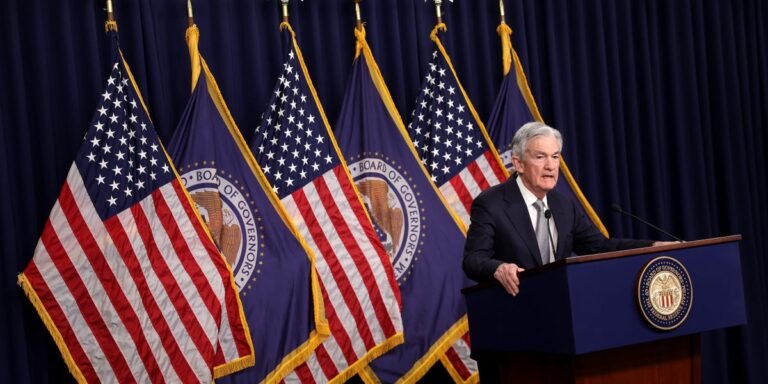- The Fed has caught some heat for its role in the latest stock market sell-off.
- Kelly says the Fed needs to broadcast its confidence in the economy to soothe jittery markets.
- JPMorgan’s David Kelly told Business Insider he sees a possibility for even deeper losses following the big rout.
Stocks are up on Tuesday, but investors are still rattled from a historic three-day global sell-off sparked by a confluence of weak US data and a surprise rate hike in Japan.
In the US, the bloody market rout should be the Federal Reserve’s cue that it needs to do more to help investors feel confident about the economy as they weather this period of extreme volatility.
That’s according to David Kelly, chief global strategist of JPMorgan Asset Management, who told Business Insider in an interview during Monday’s tumuly that the Fed should broadcast a strong message to markets that the situation is in hand.
“I think what they should say is, we’ve expected the economy is going to see a slowdown. That’s what we’re seeing here. We do stand ready to cut rates as appropriate but we don’t think there’s a very urgent situation here,” Kelly said.
Some commentators have called for emergency rate cuts after the massive sell-off. However, Kelly says he doesn’t think such a move would be constructive because cutting rates so quickly reduces interest income, which causes investors to lose out on the current high yields on the $6 trillion sitting in money market funds.
More importantly, cutting rates abruptly would potentially instill more fear about the economy among investors, Kelly said.
On Monday, US stock indexes tanked, with the Dow Jones falling over 1,000 points and the Nasdaq Composite tumbling more than 3%. In global markets, Japan’s Nikkei 225 dropped 12.4% in its biggest single-day decline since the 1987 Black Monday crash, while European markets also dropped.
The selloff prompted some investors to break out the recession playbook, investing in defensive stocks, dividend-paying shares, and government bonds while selling high-flying growth stocks tied to popular trades like AI.
Kelly said one of the big problems is that the Fed should have never kept rates so high for as long as it did.
“The Federal Reserve should always, I think, aim to get back to neutral and stay there. They shouldn’t try and overshoot into a tightening policy, or even an easing policy to try and stimulate the economy.”
In short, by waiting too long to cut rates, the Fed allowed the job market to weaken, which partly caused the panic that set off the multi-day market plunge.
But even cutting rates at the last policy meeting would not have been a quick fix that would have prevented the surge in volatility, and rate cuts, similar to rate hikes, have a lagged effect on the economy.
“I think people just don’t get that. And I don’t think the Federal Reserve tells people that, or maybe they don’t appreciate it themselves,” Kelly said, adding, “It’s a drag before it’s a stimulus.”
Kelly thinks that the economy will most likely continue to slow, and a recession is possible, as is a steeper stock correction.
“A 10% correction, or a 20% drop with the bear market, is absolutely possible,” he said. “If you’re an investor, the problem is this you don’t know when it starts.”



